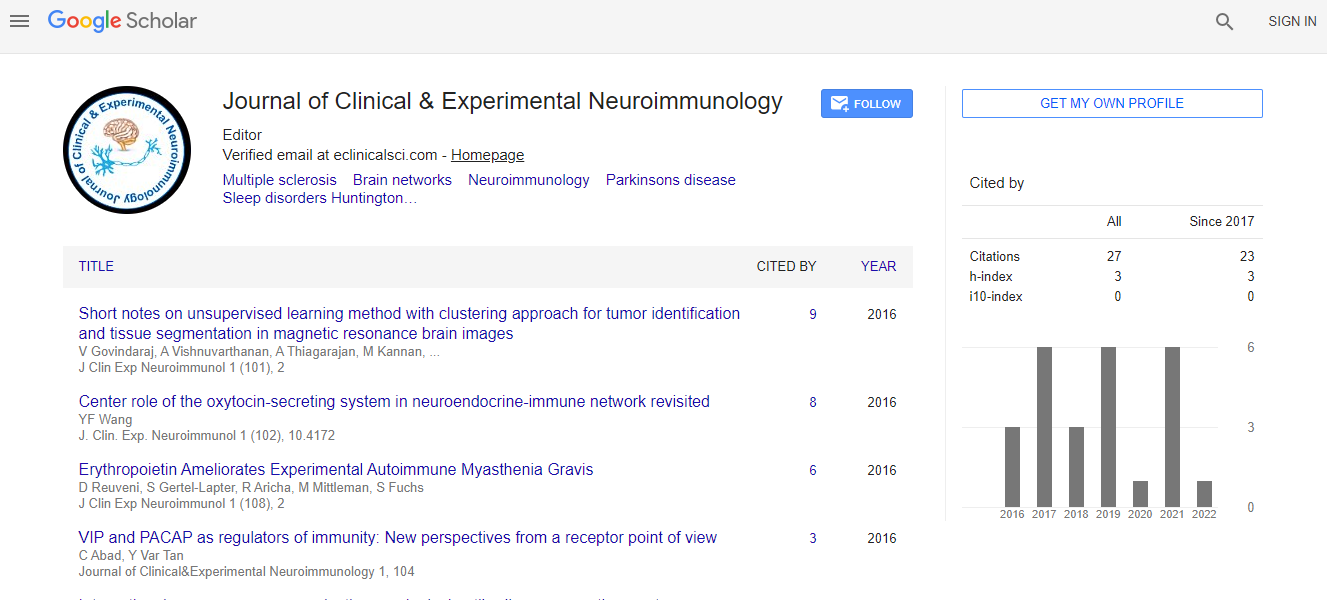Our Group organises 3000+ Global Conferenceseries Events every year across USA, Europe & Asia with support from 1000 more scientific Societies and Publishes 700+ Open Access Journals which contains over 50000 eminent personalities, reputed scientists as editorial board members.
Open Access Journals gaining more Readers and Citations
700 Journals and 15,000,000 Readers Each Journal is getting 25,000+ Readers
Google Scholar citation report
Citations : 35
Journal of Clinical & Experimental Neuroimmunology peer review process verified at publons
Indexed In
- Google Scholar
- RefSeek
- Hamdard University
- EBSCO A-Z
- Publons
- ICMJE
Useful Links
Recommended Journals
Related Subjects
Share This Page
Donald Palmer

Donald B. Palmer
Associate Professor
The Royal Veterinary College
University of London
UK
Biography
Dr. Donald is a Senior Lecturer in Immunology. He did his undergraduate studies (Medical Sciences) at Bradford University, his postgraduate studies (MSc in Immunology) at King's College London and obtained his PhD which involved investigating the genetic regulation of Beta-2-microglobulin in the Division of Transplantation Biology, MRC Clinical Science Centre, Northwick Park Hospital. This was followed by a post-doctoral position at Cancer Research UK, looking at lymphocyte development in transgenic and mutant mice in the laboratory of Dr Mick Owen. Dr. Donald undertook another post-doctoral position at Imperial College in the laboratory of Professor Mary Ritter, again working in the area of lymphocyte development, but in the context of the microenvironment. Dr. Donald successfully obtained an MRC Career Development Award and became a Research Lecturer at Imperial College London. During this award he used antibody phage display technology to study cellular interactions in the thymus and investigated intrathymic neuroendocrine communications. He joined the RVC in 2002. Dr. Donald is currently a member of the British Society for Immunology (BSI), was Secretary of the London Immunology Group (a Regional Group of the BSI; 2002-2007) and now a board member of the BSI council. He is also a member of the British Society for Research on Ageing. Dr. Donald is currently a Senior Honorary Lecturer at Imperial College, London
Research Interest
Dr. Donald’s main research interests are immunosenesence, particularly with regards to age-associated thymic involution. He is also interested in the use of antibody phage display technology to identify novel markers on stem cells and cancer cells.

 Spanish
Spanish  Chinese
Chinese  Russian
Russian  German
German  French
French  Japanese
Japanese  Portuguese
Portuguese  Hindi
Hindi 

